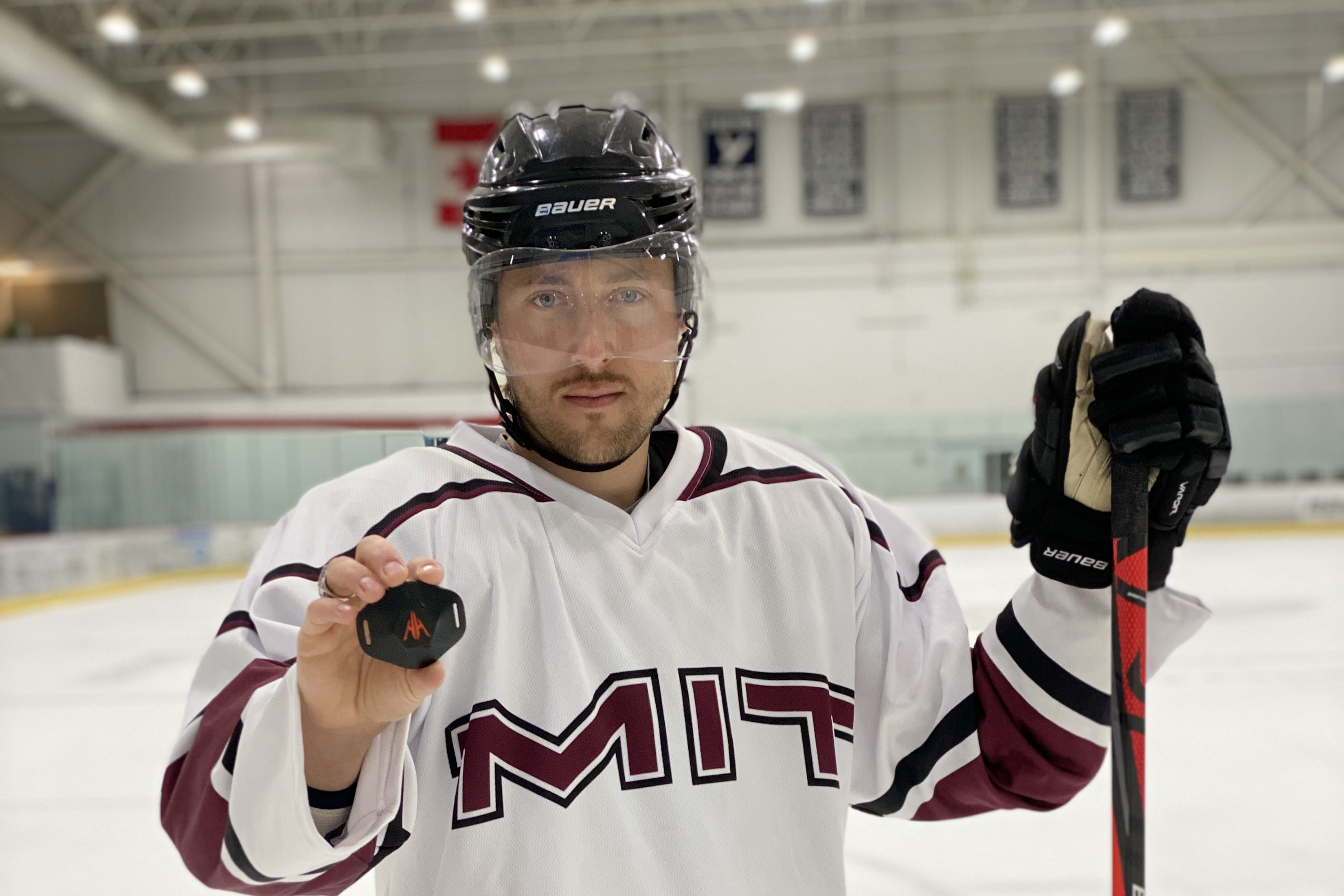Helping Hockey Players Reach Maximum Potential on the Ice
-
-
Slice of MIT
Filed Under
Recommended

As a boy, Bill Near ’10, MEng ’12 (Course 6) always dreamed of playing in the National Hockey League. But he had no way of knowing what level he was starting from. “I felt like I was skating in a vacuum,” says Near about his youth on the shores of Lake Winnipesaukee in New Hampshire. “Like most developing athletes, I had no real feedback about my development on the ice.”
Today, thanks to Near and his company, HELIOS, developing athletes can chart their progress in speed, agility, explosiveness, and balance using a patented performance sensor. They can even compare themselves to their peers across the continent. “If you’re tracking your development in these criteria, you’re more likely to reach your maximal potential as an athlete,” says Near, who skated center for the MIT varsity hockey team for five years.
Near’s discipline—and his passion—were tested in 2009, when, during the global financial crisis, MIT cut both its men’s and women’s ice hockey programs. As team captain, Near and a group of then-current and former MIT hockey players led the charge to create a 501(c)(3) corporation and raised enough money to not only save the team but to fund an endowment that continues to sustain the men’s team. He even co-led the process of interviewing and hiring a new team coach—NHL scout Dave Hunter.
MIT breaks you of any bad habits you might have had. And it gives you the confidence to enter new spaces, a willingness to step into the unknown.
On graduation, Near joined fellow MIT alums at ClearMotion—an automotive technology company where he served as director of electrical engineering. “I got to wear shoes that were two or three sizes too big,” says Near. “Shoes I wouldn’t have been able to wear at a bigger company. I also learned how a company is built and scaled.”
In 2018, Near took that knowledge and founded HELIOS. In its first year, the company developed its first product, a patented smart puck technology. HELIOS soon pivoted to a device worn on hockey shoulder pads that tracks each stride a skater takes using a sensor-based machine learning model. Mobile and cloud software processes the sensor data and delivers information including gamification, hustle scores, and automated shift breakdown for games. Hunter―Near’s former MIT coach and currently a scout with the NHL’s Seattle Kraken―was one of HELIOS’s first investors, along with Kraken general manager and NHL hall of famer Ron Francis.
HELIOS started production in 2021 in two New Hampshire locations; keeping production domestic spared HELIOS the pain of waiting for parts to arrive on ships tied up in pandemic-related snags. Today, HELIOS’s products and membership service are available online direct to consumer and through 46 retail locations across the US and Canada. To date, HELIOS technology has tracked over 30 million strides and 25,000 hours of use in North America, from youth hockey to professional games. Near and his staff have even found a way to align their machine learning with game videos so skaters can analyze their shifts without having to fast forward or search.
Near says he has few regrets about not making it to the NHL. He’s happy to be an entrepreneur building a platform to help the next generation of players get better faster. And he gives MIT a lot of the credit. “MIT breaks you of any bad habits you might have had,” he says. “And it gives you the confidence to enter new spaces, a willingness to step into the unknown. In truth, I have a tough time relating the person who started there in the fall of 2006 to the person who left in 2012. It was a dramatic change, in a very positive way.”







